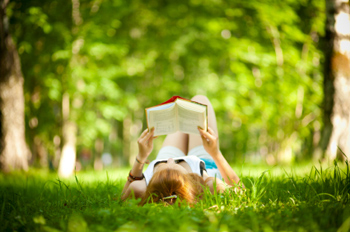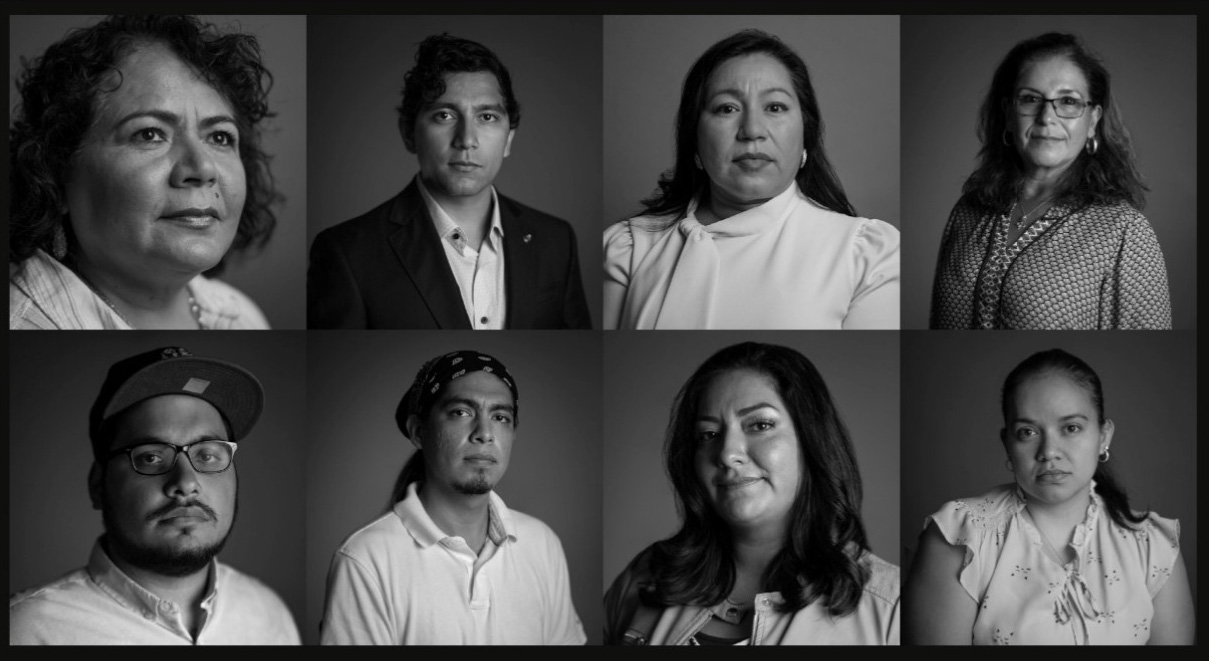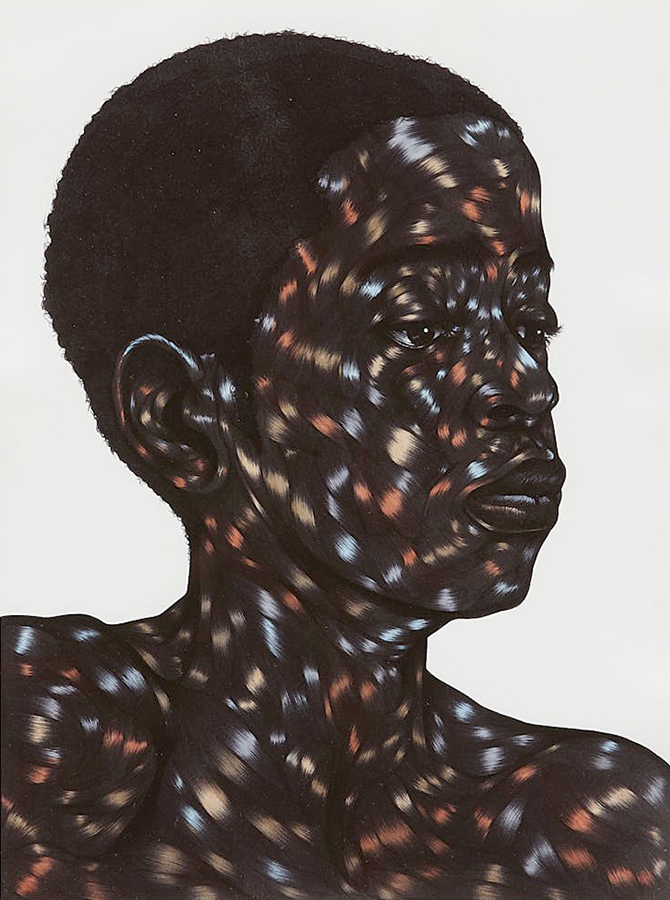Update: Elizabeth Alexander is the president of the Andrew W. Mellon Foundation.
Elizabeth Alexander, who was invited by President Barack Obama to read a poem at his inauguration, talked with Faith & Leadership about her sense of the sacred and how she approached writing “Praise Song for the Day.”
Alexander is a poet, essayist and playwright. In addition to “Praise Song for the Day, written for the January 2009 inauguration, she has published five books of poems, including “American Sublime,” which was one of three finalists for the Pulitzer Prize and was one of the American Library Association’s “Notable Books of the Year.”
Alexander spoke with Faith & Leadership in April 2009 when she visited Duke University for a poetry reading.
» Listen to Elizabeth Alexander read "Ars Poetica" and "Praise Song for the Day."
Q: Did the church play a role in your imagination or your growing up, or do you look at your spirituality more broadly?
I look at my spirituality more broadly. It’s interesting -- I’m Episcopalian, I was raised Episcopalian -- and I was a very serious dancer growing up. My ballet school was in St. Mark’s Episcopal Church [in Washington, D.C.] and one of the ways that the dance school paid the rent to the church was by doing performances in church services. It was a very beautiful, very progressive church community, and the arts were a very integral part of it.
So I think that to have sacred spaces that saw art as sacred, too, was a very fundamental aspect of my growing up.
I have always found in art -- first in dance and then in poetry -- a way of listening to or communing with aspects of the spiritual. Again, rather than the religious per se, rather than following one doctrine, I think about the ways that the daily presence of the spiritual realm manifests itself. The aspiration to that manifestation is what artmaking, in part, is about.
Q: Did your experience in St. Mark's intersect with your churchgoing life, or was it primarily the notion of sacred space?
Sacred space. I was not a regular churchgoer growing up but went into that church building five days a week. So, you see, it was an interesting thing. Jim Adams, the minister, was very much a part of what we were doing in the dance school, and in fact Mary Craighill, who was the director of the St. Mark’s Dance School and dance company, was a very well-known modern dancer, especially for her work in liturgical dance. For all of us, it had different amounts of overlap with our spiritual and church lives.
Q: In an interview on your website, you said, “Besides making and raising children, the mystery of making art is the most spiritual zone of my life.” Has your work changed since you have become a mother?
Oh, profoundly, profoundly. With motherhood, everything is sacred and nothing is sacred. Which is to say, writing poetry exists in the day along with making school lunches and attending to the other duties of the day. And you just take the time for it. You don’t have the luxury of hours and hours unbroken, so you just take the time for it. I very much like the practicality that motherhood has brought to my artmaking.
Also, being pregnant -- which I’ve written about -- giving birth -- which I’ve written about -- and then raising children at various stages I find profoundly interesting. Literally, of interest. It’s something I want to write about. The language of it interests me, the revelations interest me, all of it interests me. So it certainly is subject matter.
And then I think, finally, just the amazing miracle of creation that starts from something so small...that starts from a blank page, that starts from two human beings. Creation from that...what an extraordinary, extraordinary thing.
Q: When you were called upon to perform a ceremonial role, how did you stay true to your art and your craft?
"Occasional" poems do have work to do. They have a job to do. Now I think there are a million different ways that that poem could have served that moment, served that occasion, served that day. And in fact I’ve thought about so many other American poets who I admire, and what they would have brought to the poem. They would all be different; they would all succeed in a million different ways.
So, yes, there’s the job. That is the very challenge: to stay true to your own sense of craft, your own sense of what a poem is, your own sense of voice, your own sense of having made something that in some small way transcends. Of meeting a creative challenge.
Q: In thinking about that ceremonial, “occasional” poem, did you find the tradition of writing such poetry limiting in a negative way, or were you happy to work within its confines?
In general, I think there is always artistic liberation to be found within confines. In that regard, that’s my approach to different ways of thinking about form, to the poem itself, which always has limitations, even if you put them there. Literally it is a framed thing, it is a made thing, it’s a structure, it has boundaries. That is always, always true. Once again, it was a very difficult exercise, but part of what made it interesting was thinking about its purpose.
Q: Can you talk a little bit about the "praise song" form and why you chose that?
The "praise song" is a West African format in which to praise. I didn’t strictly adhere to the form. It wasn’t that I wrote the title and that gave me my form. As in a lot of my work, there’s a lot of hybridity, sort of borrowing and making different forms my own in some kind of way.
But I wanted to invoke the praise song because, as I understand it, it usually praises a great person. But the word Obama is not in that poem. I did this very deliberately, really in the spirit of how I read the whole campaign and his whole style of governance. Though he is an extraordinary leader, he has consistently said, “This is not about me, it’s about us. This is a movement, this is a grassroots movement, and we have to do this work together.”
So it’s not about the individual figure. It’s that sense of all of the people, all of the stories that brought us to one remarkable day. I thought that it was a way of bringing in that history and not talking about the person but praising the collective.
Q: There was a part of the poem you wrote for the inauguration where you say, “Love beyond marital, filial, national,/ love that casts a widening pool of light, love with no need to pre-empt grievance.” Was the notion of Christian love the inspiration for that part?
It’s interesting. I was actually trying to think very powerfully in a not-exclusively Christian fashion about all of the different ways that we find value. So the stanza before that says, “Some live by love thy neighbor as thyself,/ others by first do no harm or take no more than you need.”
What I’m trying to do there is invoke different governing systems of belief and then the question at the end of all that: “Is there a unifying principle across those systems of belief?” So Christian love is not a trumping love in any kind of way. But I wanted to talk about love. First of all, I think that most listeners, when they hear "love," they think romance and Valentines and hearts. I wanted to explore love in a much, much, much deeper way.
So, yes, it’s agape and other kinds of concepts of love that aren’t about romance. It’s not just my brother, my mother, my father, my spouse. It’s not just my nation. It’s something wider than that. I really didn’t want that final riff of the poem to stay rooted in any one system of belief or philosophy. I wanted it to be large.
That’s the spirit that our president has brought forth, too.
Q: It’s interesting that, considering the occasion, you would want to go beyond the love of nation. Were you nervous about doing that?
The beauty of President Obama asking artists to participate in the day and saying, “Do what you will,” is that he was saying, “Artists take us where they take us. Let’s go with them.” That was very important and very extraordinary.
You know, I’m sure there are some people who don’t like that idea, but my very profound belief is that if we only understand ourselves as national people and not as human beings on the planet, if we are isolationists, that we are doomed. And I don’t think that’s putting too strong a point on it. And I don’t think that having a global vision is at all contradictory to national pride. At all. I think the two really, really feed each other. I just think that the nation is not where our identities begin and end.
Q: Do you have any general advice you give to writers?
I have several pieces of advice that always work. (Laughs.) One is to always read. Just to continually replenish that storehouse. To think of reading poems eclectically as a source of inspiration, as nourishment, as a necessary part of the writing process. Sometimes that’s useful because we focus so much on putting the words on the page that we don’t often enough attend to keeping words in the storehouse. So that’s one thing.
And the other thing is: The struggle to write well does require great courage. And part of the courage is to go where sometimes you don’t want to go, but to follow it. To write through the dreck. Very, very few good poems start out that way. So you really have to steel yourself and humble yourself to write a lot of not-so-good stuff, but just to hold on and keep pushing in order to make it better.
And then, finally, to write because you have to. And if you don’t feel that you have to, there are many other ways of being productive and creative. That’s a little bit of tough love, but I think it’s important. The wish to express onself -- there are many different ways that that can take form.







